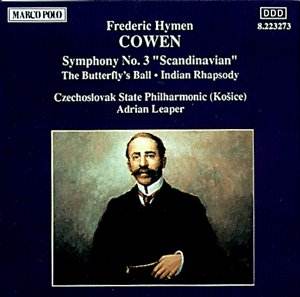 Composer: Gioacchino Rossini
Composer: Gioacchino Rossini
Works: Il Signor Bruschino – Opera in one act
Performers: Jerzy Mahler (bass, Gaudenzio), Sofia Alicja Slowakiewicz (soprano, Mariana), Jan Wolanski (bass, Bruschino), Kazimierz Myrlak (tenor, Florville), Dariusz Niemirowicz (bass, Filiberto)
Recording: Warsaw Chamber Opera / Jacek Kasprzyk, Recorded 1985
Label: Pavane Records ADW 7158 [CD: 72.19]
Rossini’s “Il Signor Bruschino,” composed when the maestro was a mere 19 years old, represents both a significant curiosity in the operatic canon and a delightful exploration of the farsa genre at the turn of the 19th century. This one-act opera, although overshadowed by the more illustrious works that followed, offers a rich tapestry of comedic devices, lyrical artistry, and a glimpse into the youthful exuberance of a composer destined for greatness. The present recording by the Warsaw Chamber Opera, under the baton of Jacek Kasprzyk, revitalizes this charming piece, delivering an interpretation that is both lively and expressive.
The performance captures the essence of Rossini’s light-heartedness while exploring the intricacies of the score with a commendable balance of drama and humor. The overture, characterized by its frenetic energy and rhythmic drive, establishes the opera’s playful tone effectively. However, it is in the subsequent arias and ensembles where the performers truly shine. Kazimierz Myrlak as Florville initially struggles with projection, but as the opera unfolds, he finds his footing, particularly in the duet with Mariana, which beautifully showcases the vocal interplay typical of Rossini’s style. The orchestral balance, while at times favoring the ensemble, generally supports the singers in their comedic endeavors, an essential element in a work that thrives on dialogue and interaction.
Jerzy Mahler’s portrayal of Gaudenzio is particularly noteworthy; his deep, resonant bass voice infuses the character with both comedic flair and a hint of pathos. Mahler deftly navigates the rapid-fire recitatives, maintaining clarity and expression—his unaccompanied letter reading stands out as an exemplar of Rossini’s knack for blending humor with emotional depth. Jan Wolanski’s Bruschino, a caricature of paternal authority, aptly evokes laughter with his exaggerated vocal mannerisms, particularly in moments of deranged denial regarding his son’s identity. The trio involving these three characters is executed with a buoyancy that highlights Rossini’s gift for ensemble writing.
Sofia Alicja Slowakiewicz’s performance as Mariana deserves special mention; her clear soprano voice, although occasionally slightly shrill at full volume, conveys the character’s emotional landscape with grace. The cor anglais accompaniment during her solo recitative creates a hauntingly beautiful atmosphere, allowing her vocal nuances to resonate. There is a palpable chemistry among the cast, particularly in the duets and quartets, where the singers demonstrate an impressive cohesiveness that elevates the performance as a whole.
The engineering of this recording, while dated, captures the vibrancy of the live performance effectively. There are moments where the orchestral forces can overpower the singers, particularly in the early sections, yet the overall clarity is commendable. The absence of a libretto translation is a notable oversight, as the rapid-fire exchanges and comedic nuances would benefit from textual accessibility for listeners unfamiliar with the Italian language.
“Il Signor Bruschino” may not sit at the zenith of Rossini’s oeuvre, yet this recording offers an engaging and spirited rendition of a work that deserves more attention. The performers navigate its challenges with enthusiasm and skill, showcasing the charm and wit that define Rossini’s early style. This recording serves as an excellent introduction to the farsa genre and stands as a testament to the enduring appeal of Rossini’s comic genius.



